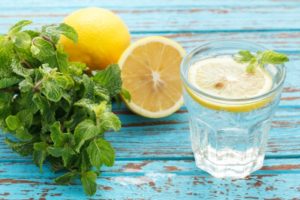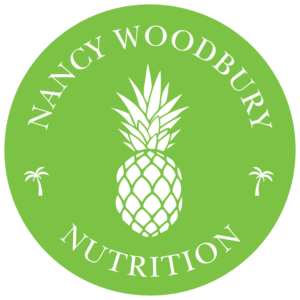
Image courtesy of phasinphoto at FreeDigitalPhotos.net
Staying hydrated in the heat and humidity is vital, but choosing a healthy drink to quench your thirst can sometimes be tricky. Stroll down the beverage aisle of any supermarket and you’ll see hundreds of bottled drinks with eye-catching labels claiming superior taste, health and performance benefits. But before you fill your shopping cart, here are some facts you should consider:
How much water should you drink?
Drinking water is one of the best ways to prevent dehydration and supply your body with the fluid it needs for optimal health. Aim to consume enough fluid every day to prevent thirst, which appears with a 1-2% reduction in body mass from fluid loss, and to produce pale, yellow urine. The National Academy of Sciences recommends a total daily fluid intake from all foods and beverages of 3.7 L for 70 kg (154 lbs.) males and 2.7 L for 57 kg (125 lbs.) females. Physical activity or exposure to heat and humidity will increase these requirements.
Why is drinking water important?
Water is essential for life and plays an important role in the body, including regulating body temperature, digestion, lubrication, transporting nutrients and removing waste products. Symptoms of mild-to-moderate dehydration include fatigue, thirst, dizziness, weakness, and low urine output. Severe dehydration can result in rapid heart rate, low blood pressure, extreme thirst, irritability, confusion, delirium, and reduced output of dark, yellow urine.
Dehydration impacts performance
Research has shown physical and cognitive performance declines when more than 2% of body weight is lost from dehydration, which can occur with inadequate intake of fluids, exposure to a hot and humid environment, and physical activity. It’s easy to become dehydrated at the beach or while enjoying outdoor activities in the summer sunshine.
Rehydration sports drinks
Sports drinks that replace electrolytes such as sodium can be a wise choice if you exercise more than one hour in the heat, and may slightly reduce the risk of a dangerous electrolyte imbalance, known as hyponatremia, particularly in slow marathon runners who lose sodium in sweat and drink too much water during a long race. The precise combination of sugars in sports drinks such as Gatorade or Powerade helps to replenish muscle stores of glycogen depleted by endurance exercise.
Although caffeine is a mild diuretic, research finds that coffee and tea, both brewed with water, are actually hydrating when consumed regularly. Beverages marketed as “energy drinks” contain large amounts of sugar and caffeine, which may cause abnormal heart rhythms, anxiety, gastrointestinal distress, and life-threatening symptoms, especially when combined with alcohol. Avoid these drinks or consume with caution only in moderation.
What to drink if you dislike water
If you avoid drinking water because you dislike the plain taste, here are a few suggestions to add some zest to your drinks. Flavor your water with slices of lemon, lime, orange or berries to make it taste fruity. Add seltzer water to 100% fruit juice poured over ice to cut calories in half. Other nutritious and delicious choices include coconut water, milk and milk substitutes such as almond, soy, hemp or rice milks.
Sugar-sweetened beverages such as soda or fruit-flavored drinks provide few nutrients but may contain up to 10 teaspoons of sugar in an eight-ounce serving. Divide the grams of sugars listed on the Nutrition Facts label by four to obtain the equivalent number of teaspoons of sugar in packaged drinks. Even 100% fruit juice, which provides Vitamin C and other nutrients, contains natural sugar that can increase blood glucose levels, so remember that a serving of fruit juice is only four ounces.
Foods that contain water
You might be surprised to know that water is also available in the foods we eat. Many fruits and vegetables contain more than 90% water, which contributes to your total fluid intake for the day. Snack on sliced veggies, start your meal with leafy greens or a cool gazpacho soup, and enjoy a fresh fruit salad for a refreshing, seasonal dessert. Watermelon, canteloupe and honeydew melons are very hydrating.
